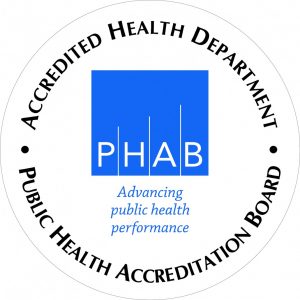Public Health Emergency Preparedness (PHEP)
*During a public health emergency, information will be posted on this website for response and recovery*
 Community-based Preparedness
Community-based Preparedness
The Emergency Preparedness Program is responsible for MPH’s emergency preparedness activities including developing and updating response and recovery plans, maintaining supplies and equipment, and providing training to best respond to adverse events that affect the public’s health. We work with Marion emergency response partners to ensure residents and visitors are protected when natural or man-made emergencies happen here because these events have a probable long-term impact on our community’s health and safety. We continuously evaluate and improve how ready we are for emergencies.
The program engages cooperative partners in response to public health emergencies in an effort to maintain public, healthcare, safety, security, and service continuity, manage mass care events, and facilitate response to communicable disease outbreaks, pandemics, and other events that could impact public health.
How does the Emergency Preparedness team prepare for emergencies?
- Maintain a staff ready to respond 24/7/365 to health or community emergencies
- Plans and coordinate public health response and recovery activities with Marion County Emergency Management Agency and other health and public safety partners
- Plans and coordinates response efforts with 17 health departments in the Central Region and the Ohio Department of Health
- Provide training to staff and community partners in emergency response efforts
- Provides timely, accurate, and critical information about the situation in the event of an emergency
- Stays ready to assist in the distribution of medicine and medical supplies for a large community emergency
- Educates the Marion community centered in how to prepare for emergencies
- Participates in trainings and exercises to prepare for and improve emergency response to events involving infectious disease, chemical or biological, and natural disasters
- Participates as a member of the Central Ohio Regional Healthcare Coalition linked to https://www.cotshealth.org/rhep
Personal and Family Preparedness
Marion County has the potential of emergencies related to floods, extended power outages, and severe weather including thunderstorms, tornadoes, and snowstorms. The Emergency Preparedness Program tries to anticipate what emergencies Marion could face and then develop plans to be able to respond to any threats to health and safety.
In terms of weather-related emergencies, MPH plans address situations that could potentially put public health at risk. If Marion experiences a flood and power goes out for a lengthy amount of time, MPH might be called on to inspect temporary shelters to assure health and hygiene. Another example is MPH could be called on to inspect restaurants and grocery stores to ensure food stays safe during and after the power outage.
Health-related emergencies may include flu conditions for an entire family resulting in home isolation for several days. What might you do in this kind of emergency? Do you have everything needed at your home so that you would not have to go out?
You may consider ways to enhance your personal safety when surrounded by a disaster. Some resources to access are rooted in different scenarios and allow you to tailor personalized individual and family emergency response plans. You may look into what is needed for creating disaster kits as having supplies can be just as critical as having a plan.



